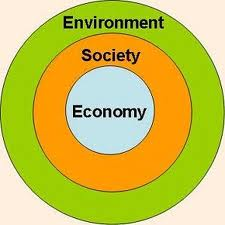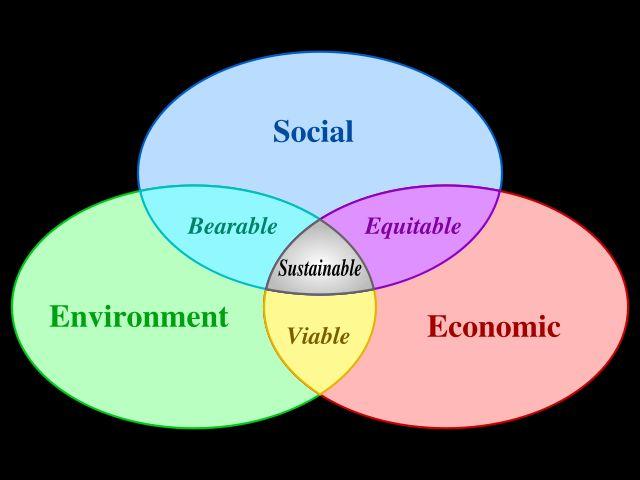Introduction
The concept of ‘sustainable development’ takes its origin in the times of the post-war environmentalist movement, when the negative effects of human development upon the planet were fully recognized. Understanding the importance of saving the environment and securing the future, the society decided to make ‘greening’ of the economy an important concern for management at all levels.
Main Discussion
The international attempts of developing strategies for sustainable development have had impact upon many organizations. In 1992, the United Nations Conference on Environment and Development took place in Rio de Janeiro, where the main principles of global sustainability were defined (DEFRA 2011). Whereas sustainability has become one of the key principles of development, there are several approaches taken by scholars in defining the concept of ‘sustainable development’ (The Scottish Government 2006).
The theoretical approaches range from strong sustainability (a planet over people approach) to weak sustainability (technology over planet approach). Therefore, individual countries and companies should take the course towards greening of their economies, but can choose different shades of green, depending upon the selected approach (StartupNation 2012). The issues of sustainable development are reflected not only in the mission statements of particular companies, but also in legal documents. Furthermore, there is a direct relationship between social and environmental responsibility taken by modern companies and their local benefits (The World Bank 2008).
The companies complying with the requirements of green economies can be awarded with the right for lower taxation or other economic benefits, whereas the companies violating the generally accepted norms can be fined. In addition, with the growing concerns over environmental issues and increased public consciousness, businesses that neglect the issues of sustainable development, undergo the risks of negative imaging and corresponding negative impact upon their profits.
The sustainable development strategies, as an aspiration for modern companies, require greening the economy, but is an integral element of the company’s corporate effectiveness.

Conclusion
The concept of ‘sustainable development’ is placed at the intersection of environmental, social and economic dimensions. By balancing these three perspectives and developing an effective solution, satisfying the demands of all these three fields, the intergovernmental organizatios, governments and companies would be able to achieve the goal of sustainable development.
The historical evolution of the concept of sustainable development and the international attention to the environmental issues and greening of economies clearly demosntrate the significance of these issues. Though there is a wide range of theories taking different positions concerning the potential impacts of unsustainable development, all of them are unanimous as to the importance of securing the future and businesses’ active involvement into these strategies (The Scottish Government 2006).
The consideration of environmental concerns and social responsibility should become the corner stone of corresponding legal documents and companies’ mission statements. On one hand, companies should consider sustainable development as an important principle, affecting their image and customers’ attitudes. Due to the intense competition in the market, modern consumers can use the principels of sustainability as a criterion for selecting the brands and service providers.
On the other hand, the inclusion or neglect of the environmental issues into the companies’ mission and strategies can have positive or negative implications respectively, because the governments enacted laws, regulating the companies’ compliance with the norms of sustainable development (The World Bank 2008).
Thus, sustainable development strategies have become mandatory for the companies’ economic success and can become a win-win situation for businesses, society and environment.

References
DEFRA 2011, A very brief history of sustainable development, Sustainable Development In Government. Web.
The Scottish Government 2006, Sustainable development: A review of international literature. Web.
StartupNation 2012, Learn what it means to be a green business. Web.
The World Bank 2008, Environmental sustainability: An evaluation of World Bank Group Support, IEG World Bank, IFC, MICA, Washington, D.C. Web.